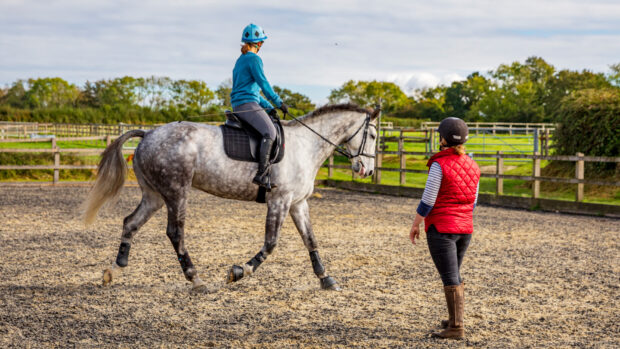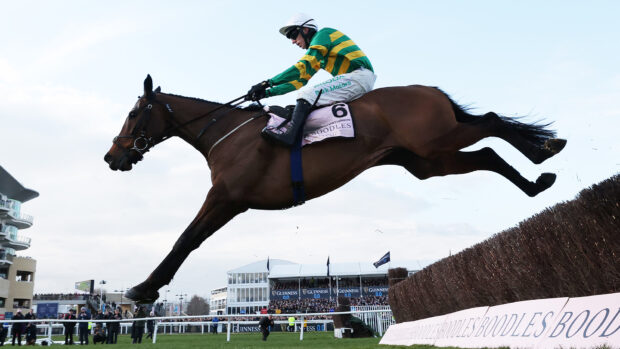Leading a poorly trained or ill-mannered horse can be one of the most stressful parts of your day. Emily Donoho looks at ways to instil politeness into your horse from the ground
Leading a horse, a simple, daily necessity, can be one of the most fraught moments of your day. Do you find yourself waterskiing behind your horse, or dragging him behind you? Does he dive for grass at any opportunity? Is he crowding into your space and running you over? Do the staff at your livery yard dread handling him?
Even if you’re an experienced handler and don’t mind a slightly pushy horse, you never know who else will have to handle him, so teaching him to lead politely is better for all concerned.
Colorado trainer Amy Feineman says: “Imagine that, for whatever reason, a three-year old needs to lead your horse. Or maybe it’s your elderly dad, or a student accidentally catches your horse instead of the another horse that looks similar. All three are situations I’ve seen, including my poor dad trying to lead a horse to a trailer while evacuating from a fire.”
Groundwork exercises to help with leading a horse
With a bit of time and straightforward groundwork exercises, your horse can learn to walk calmly and quietly at your side and at whatever pace you decide. This makes him safer and more pleasant for anyone who has to handle him.
The first thing the horse needs to learn is how to yield to pressure, one of those basic skills that should have been taught when he was halter-broke, but, as Amy points out: “It is often a bit of a training hole.”
Push on any part of his body; as soon as he yields, stop pushing. With your hand, you put a little pressure on his nose or his poll, and as soon as he drops his head, release him.
Amy explains: “An easy, and important, one is to grab the top of the lead nearest the head with one hand, thumb towards your horse’s chest, and gradually apply pressure towards the chest until the nose drops in.”
Once you’ve trained him to give his head, add a little more pressure until he offers to back up, then release. Now you’ve trained him to back, which is important for the next step.
Once he’s quickly and consistently yielding to pressure, it’s time to take a walk.
“Decide how far behind you your horse should be and walk to that distance ahead of him while he stands. Take a few steps with the horse following behind you, then stop,” says Amy.
If the horse does not follow, put a little pressure on the rope until he does, or if he sneaks up behind you, nearly crashes into you, or tries walking past you, reverse him several steps, then ask him to stand quietly for a minute.
The next few weeks of your life will be spent walking everywhere this way: short bouts of forward, with corrections when the horse gets it wrong. But soon enough he will be following at whatever distance you decide, and you can practice varying the speed, using the same techniques of stopping and backing to reinforce the idea of matching your pace.
The pitfalls to avoid
The biggest pitfalls are timing and lack of consistency. You must release the pressure the instant the horse responds to the aid, or he won’t understand what you want.
Amy adds that consistency is critical. “Even if you don’t really mind if your horse sneaks up a little or occasionally gets ahead, if the horse learns you will give an inch, when it really matters he may take a mile!” she says.
Liked this? You may also enjoy reading these articles…
From standing stock-still while mounting, to waiting patiently if you have to get off for a gate, there are plenty
While there isn’t a fast-track way to make you a better rider, lungeing sessions are the next best thing. Here

What is ground tying — and how could it benefit your horse?

5 ways lungeing will transform your riding

Subscribe to Horse & Hound magazine today – and enjoy unlimited website access all year round




